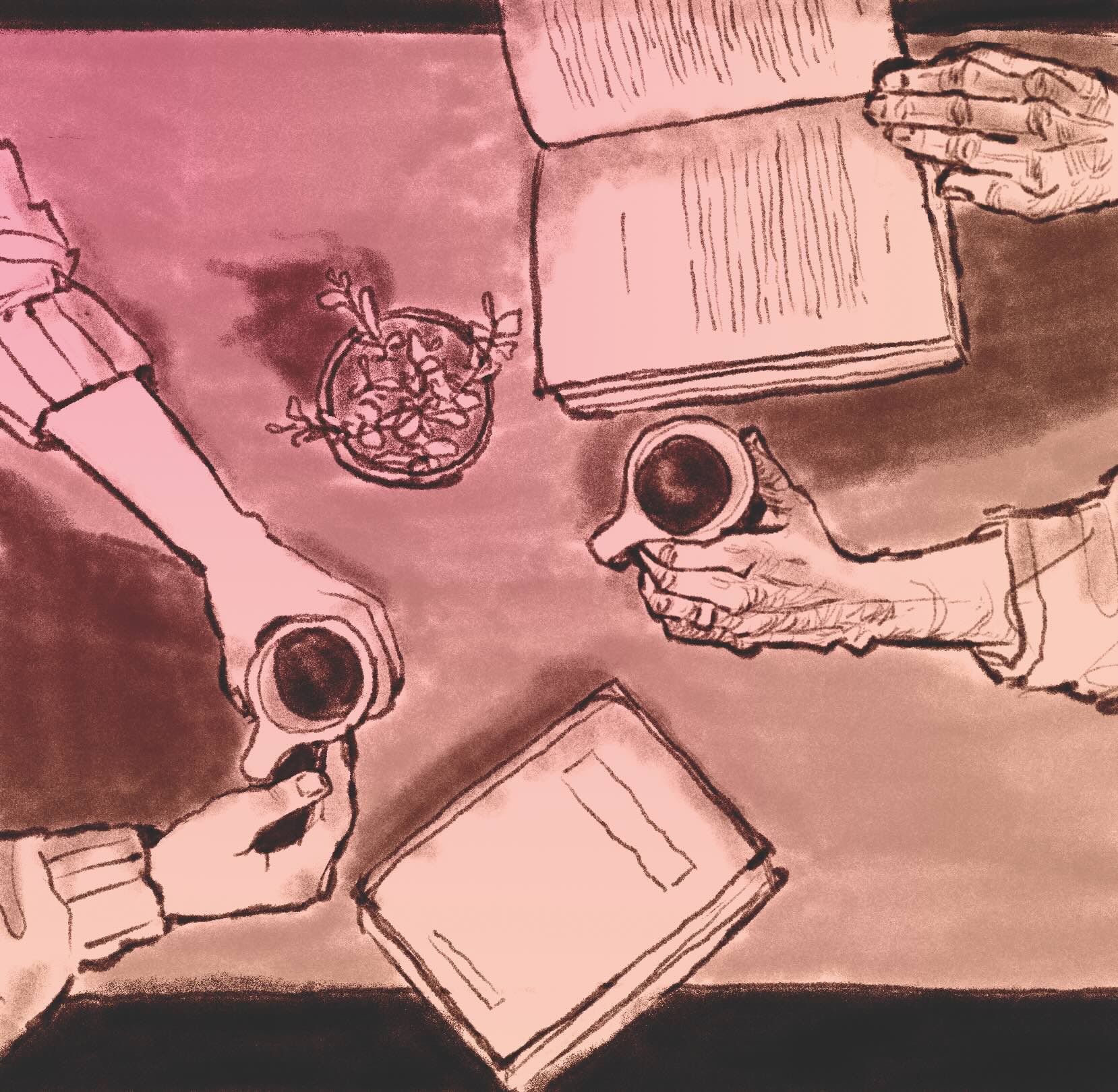Mirror, mirror
February 16, 2024
 Ada Potter
Ada PotterThere’s a small coffee shop right down the street from my high school in Pittsburgh, Pa. It’s one of those newer, trendier local spots—the walls and tables are covered in plants, and Bon Iver and Hozier play quietly from the speakers. It’s not necessarily unique in any way, apart from the fact that I’ve spent many afternoons sitting there with my grandma.
We both bring books to read. My grandma gets a french vanilla cappuccino, myself a latte. Sometimes we actually do read, but more often than not, we sit down, start talking and never even get through a single page before we realize it’s almost dinnertime, and we have to leave.
The ritual started the summer after my first year at Bowdoin. Now, every time I go back to Pittsburgh over a break, we schedule afternoons to go read at the coffee shop.
Growing up, I always admired my grandmother for qualities I was sure I could never possess— her softness, her unrelenting compassion for others and her ability to have a meaningful conversation with just about anyone she met. While we have always been close, the same things I admired her for also created a disconnect; I didn’t understand how she approached the world. When I am judgemental, she is patient. When I get angry, she shows empathy. She prays every night to protect the people she loves and gives the most all-encompassing hugs.
But she is also just fun. She regularly goes on trips, consistently has lunch plans with her wonderful group of friends and is always eager to go out to eat or get ice cream. She makes arts and crafts, assembles puzzles and reads amazing books.
We sit across from each other at the coffee shop. I tell her that I like her earrings. She says she got them on Christmas morning from my grandfather before they were married. She had initially thought the small wrapped box had been an engagement ring and had been terribly disappointed to find earrings. We both laugh.
She tells me about the time she threw an actual ring in her former fiancé’s lawn after she called off the engagement. She tells me how she went out with her friends and how she moved out on her own at 19 and how she met my grandfather and how they would go dancing and how she never got along with her mother-in-law and all of these stories that made her relatable to me.
I reply by talking about my life and find myself responding to her stories with more vulnerability than I ever do over our many phone calls. I describe my friends, who she now asks about regularly. I tell her about being heartbroken over a guy; she is one of the only people in the world who makes me feel better about it.
As we swapped stories, all I saw were the mirror images—me sitting in my friends’ dorm room laughing like my grandma laughed with her cousin when they moved into their first apartment together. I picture her going on late-night drives with her friends through the winding streets of Baden, Pa. It doesn’t feel that different from my roommates and I driving to Schiller to go swimming.
All of the cathartic, wonderful, silly, serendipitous parts about being young, being a woman and finding your community—all things I experienced at Bowdoin—my grandma discovered and experienced, too. Her gentleness is not an anomaly. She just found a way to do what most adults couldn’t: hold all of those feelings close.
When my grandma came to visit Bowdoin for the first time this past October, we rode the Amtrak train from Brunswick to Freeport, a less than a fifteen minute ride, just because she really likes trains. We sat next to each other and giggled most of the way there. She said, as she often does, that I was “living the dream.” I didn’t know how to tell her that I see her reflection in most of the good things in my life.
So, in a week that centers so much around love in all of its forms, I think of my grandma, who does it best. I’m so glad one of us has it all figured out.
Kristen Kinzler is a member of the Class of 2025.

Comments
Before submitting a comment, please review our comment policy. Some key points from the policy: